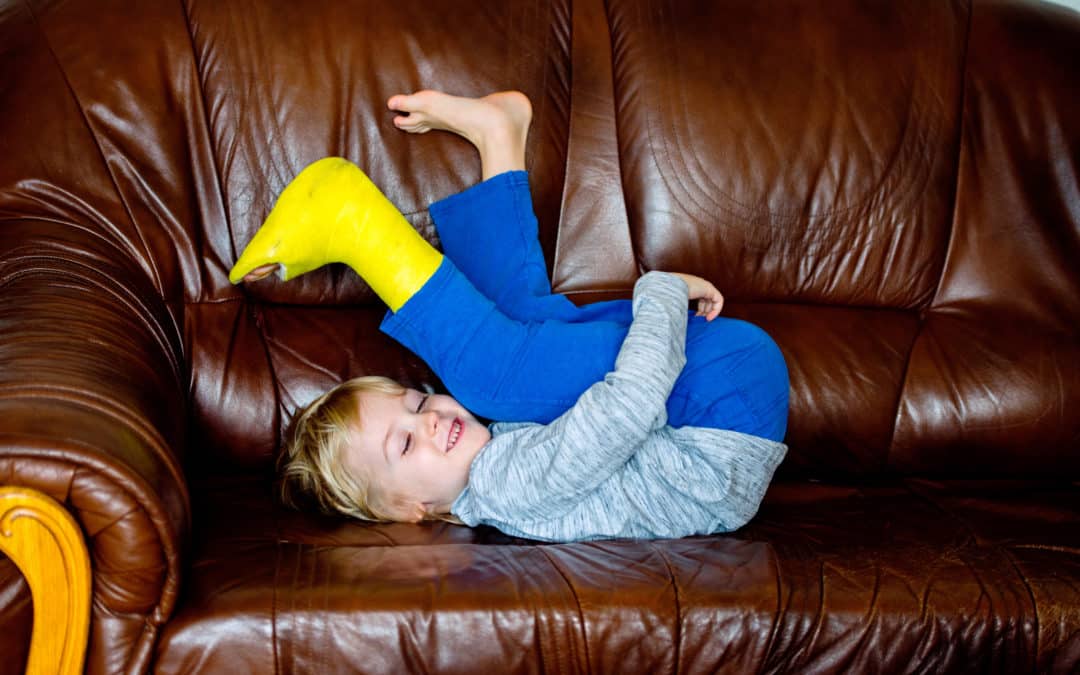Yes, there are non-pharmaceutical approaches to supporting those living with ADHD-affected loved ones and minimizing their dependence on pharmaceutical drug intervention and the risk of side effects. We spoke recently on what to do if you suspect your child has ADHD, today we look at the techniques that the parents of children with Attention-Deficit Hyperactivity Disorder (ADHD) can adopt to give their children the resilience to live with the condition.
ADHD is a neurobiological disorder that affects those parts of the brain that control our ability to organize and perform our actions, both mental and physical. The condition is caused by the body’s inability to produce or deliver the right amount of chemicals, primarily dopamine, to the brain at the right time.
The result is most apparent in young children as they develop and show signs of
Attention Deficiency (AD):
- Easy distraction
- Forgetfulness
- Lack of concentration
Hyperactivity (HD):
- Frequent fidgeting, squirming
- Persistent signs of restlessness
- Impatience
All infants may exhibit some these traits, but most grow out of them. Natural development and socialization take over, so parents should not worry unduly. ADHD usually becomes apparent around the age of 7, though sometimes symptoms are not noticeable until a child is somewhat older and encounters more challenging academic and social situations, such as school.
If you suspect your child is not developing as quickly as their peers, you should consult your primary care doctor or pediatrician. Although ADHD is one of the most common developmental conditions, affecting 5 to 7 percent of school-age children, other conditions exhibit similar symptoms, for example, anxiety, depression, sleep problems, and certain types of learning disabilities.
Your healthcare provider can recommend a psychologist or ADHD specialist who can make a diagnosis and assess the severity and perseverance of the symptoms, distractibility, impulsivity, and hyperactivity. They may also ask teachers and other carers about the child’s behavioral responses in different settings, such as nursery school or play groups.
As we said earlier, ADHD appears primarily to be caused by an imbalance of the chemicals delivered to the brain that plays a significant part in monitoring and controlling the body functions such as
- Memory, motivation, movement, pleasure, and reward
- Mood, attention, and sleep
- Cognition, learning, and behavior
Some of this imbalance can be compensated by using medications. Still, they cannot replace the role that experience plays in developing the infant brain or the immense value of social skills.
For those reasons, doctors and pediatricians recommend treatment for children diagnosed with ADHD that combines medication with non-pharmaceutical approaches such as behavioral therapy.
A child with ADHD does not necessarily link the outcome of their actions with the act itself nor consider the risks to themselves or others. The same is true for most infants. The difference is that most children learn from experience which behaviors result in favorable outcomes and which do not. They modify their behavior accordingly but people living with ADHD do not.
Behavioral therapy is an effective non-invasive treatment designed to enable developing children to manage their ADHD symptoms. Behavior therapy aims to encourage positive behaviors and discourage unwanted or problem behaviors. A therapist can conduct psychological treatment for older children one-on-one or in groups. For younger children, the common practice is to include the parents. A therapist may include the whole family and other significant carers where appropriate. The therapist encourages the child to learn and adopt new behaviors to replace behaviors or symptoms that limit their development.
For young children learning and adopting new behaviors is a 24/7 developmental process that needs constant monitoring and reinforcement. Therefore, therapists increasingly encourage parents to participate in the therapy program.
The Centers for Disease Control and Prevention (CDC) endorses behavioral therapy as an effective treatment for attention-deficit hyperactivity disorder (ADHD) that can improve a child’s behavior, self-control, and self-esteem. It is seen to be most effective in young children when parents deliver it. It is typically recommended for children younger than six years old as the first line of treatment before medication is tried.
Most of us find it difficult to change the habits of our lifetime. For a developing child, it is impossible without the 24/7 influence of parents. This can be a daunting prospect for the parents of a child diagnosed with ADHD. Your healthcare provider can discuss the benefits of parental involvement and behavior therapy training for parents of children diagnosed with ADHD.
It requires commitment from parents to learn and practice behavior therapy, but it offers lifetime benefits for the child affected by ADHD.
Your first point of contact should be your primary healthcare provider. The CDC publishes a wide-range of information on ADHD-related topics.
ADHD is in the ACA mental health benefits category, so you should be able to find pharmaceutical treatment under your existing plan. Not all health insurance providers cover the cost of therapy for the child or training for parents. Specific health insurance plans, like HMOs, will require a referral or pre-authorization for treatment by a specialist. Contact your current provider or a qualified health insurance broker before open enrollment to that you have the best plan to cover your anticipated healthcare costs.
Uninsured? You likely qualify for cheap and often even FREE health insurance through the Affordable Care Act (ACA)! During the Special Enrollment Period (SEP), TrueCoverage can connect you with quality ACA health insurance if you have had a qualifying life-changing event recently, such as losing your health insurance, moving, getting married, having a baby, and more.
Or, if you are approaching 65 years of age, TrueCoverage can also connect you with Medicare Advantage plans or supplemental policies!

